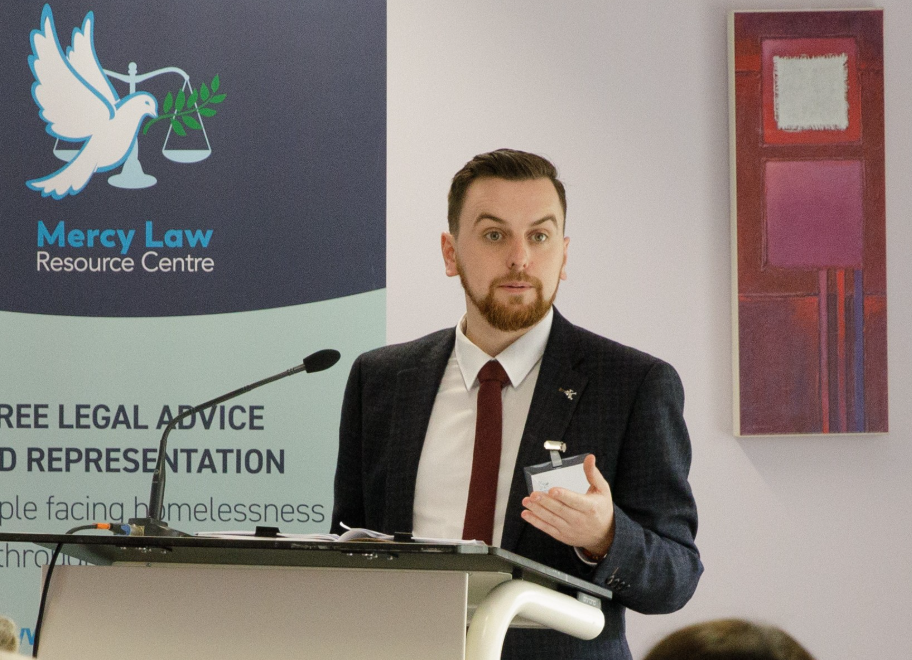
By Adam Boyle
Recent Trends in Casework
It is disappointing to note a continuing trend in our casework, where much of the work of the solicitors is focused on trying to ensure access to basic, emergency homeless supports for our clients. We are consistently referred cases from advocates, social workers, and frontline homeless services to assist households who have been refused access to emergency accommodation without lawful reason.
Local Connection Protocol
These refusals of emergency accommodation are directly resulting in hidden homelessness, with clients informing us they are sleeping on blow-up mattresses, in cars, tents, and on the street, often for prolonged periods of months. A key challenge in these cases is the operation of a “Local Connection Protocol” which was drafted and distributed by the County and City Management Association (“CCMA”).
This Protocol aims to introduce a “local connection” criterion to eligibility to access homeless services. No such criteria exists in law, and it is not lawful for local authorities or their representative bodies to apply such additional criteria. The result of this protocol has seen large numbers of households refused access to emergency accommodation and bounced between local authorities who refuse to accept responsibility for supporting them. These households are regularly refused homeless assessments or access to emergency accommodation without ever being given written reasons for this decision – a breach of the local authority’s legal obligations in and of itself.
Entrenched Positions
The work of MLRC has consistently challenged this Protocol. In many recent cases, local authorities have displayed an entrenched position when dealing with households or their advocates from frontline homeless services, refusing emergency accommodation to households – including households with children – even when aware that this creates a risk of rough sleeping. It has been our consistent experience that legal interventions in the form of pre-litigation letters have generally resulted in these local authorities resiling from this position and agreeing to provide emergency accommodation.
Judicial Review
In some cases where the local authority has refused to amend their position, it has become necessary to instruct Counsel and seek leave of the High Court to pursue judicial reviews. In one recent case, the Applicant had been sleeping in a car for almost three months prior to MLRC receiving instructions. In addition, their social housing application had been pending for well in excess of the statutory timeframe to render a decision, with no clear reason provided as to why. We wrote to the local authority on five occasions over the space of a month calling on them to reverse their position, eventually receiving leave of the court to take a judicial review.
Within days of serving papers on the local authority, the Applicant was approved for social housing supports and placed in night-by-night emergency accommodation while the council reviewed their position.
Confusion Abounds
In addition to resulting in an increase in hidden homelessness, it appears that the CCMA’s “local connection protocol” may also be contributing to confusion on the social housing front.
The Social Housing Assessment Regulations 2011 SI 48/2011 (as amended) are very clear. A person can apply for social housing support in
- The local authority area in which they normally reside; or
- A local authority area in which they do not normally reside where they have a “local connection” to that area; or
iii. A local authority area which uses their discretion to accept an application from a household which do not normally resides there nor have a provable “local connection”.
A “local connection” is defined in Regulations 6 of the 2011 Regulations and encompasses a broad range of means of proving a link, including having previously resided in the area for five years, having family who live there and have done for two years, or working in or near the area.
However, MLRC have encountered a concerning number of cases where local authorities have failed to correctly apply the 2011 Regulations. We are aware of local authorities applying some version of a local connection test in an inappropriate manner, or even where the family are already normally resident in the area and therefore a local connection is not legally necessary. Once again, these local authorities have tended to resile from this position where legal interventions occur.
Public Administration
The growing number of these cases raises ongoing concerns about the consistency of public administration and adherence to legal obligations by some local authorities. The regularity with which legal intervention prompts a change in approach suggests that there may be a broader issue of misunderstanding or misapplication of the relevant legal framework within certain decision-making processes.
MLRC will continue to vindicate the rights of our clients, while engaging in policy and awareness raising work to try to tackle the root causes of these unlawful actions.
If you have any follow up questions on this article, please email info@mercylaw.ie